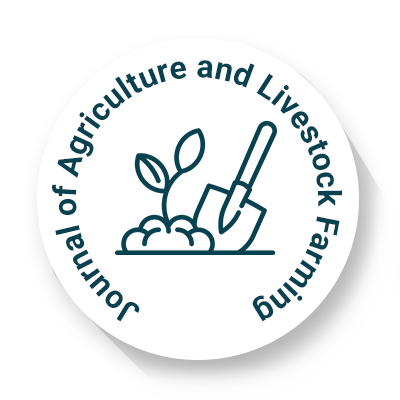
Journal of Agriculture and Livestock Farming
OPEN ACCESS

OPEN ACCESS
Rural management is the study of businesses for and of rural communities in agribusiness and allied fields, FMCG, banking and finance, manufacturing, technology and innovation, development, and many more. It merges the knowledge of management studies with the rural context. The sustainable development of rural areas needs to combine agricultural methods with economic, social, and environmental strategies. Efficient rural management aims to enhance infrastructure, education, healthcare, and market accessibility for farmers and rural communities. It consists of enforcing policies that improve agricultural productivity while supporting rural industries, job creation, and financial inclusion. Governments, NGOs, and the private sector collaborate to offer financial assistance, training initiatives, and technological solutions to strengthen rural communities. Digitalization and smart farming are increasingly important elements of rural management, enabling farmers to obtain market data, financial resources, and contemporary agricultural practices. Enhancing rural governance, optimizing land tenure systems, and promoting cooperatives also aid in building a more resilient rural economy, guaranteeing lasting sustainability and decreasing rural-urban migration.
Agricultural advancement is fundamental to rural growth, directly influencing food security, economic stability, and overall wellness. Boosting agricultural output necessitates advanced farming methods, contemporary irrigation systems, high-yielding crop types, and efficient pest and disease control measures. Sustainable farming methods, including agroforestry, organic cultivation, and conservation agriculture, aid in preserving soil fertility and minimizing environmental harm. Moreover, obtaining agricultural extension services and research-based innovations allows farmers to implement climate-smart farming practices that improve resilience to severe weather events. Enhancing supply chains and setting just market prices for agricultural goods are also vital in guaranteeing that farmers obtain fair returns for their crops, promoting economic development in rural regions.
Combining rural management with agricultural progress is crucial for fostering self-reliant and prosperous rural communities. By encouraging value enhancement via agro-processing sectors, rural businesses, and cooperative farming frameworks, agricultural economies can diversify and lessen reliance on conventional agriculture. Enhancements in infrastructure, such as improved roads, storage systems, and irrigation networks, bolster the agricultural industry and reduce post-harvest losses. Strengthening women and youth in agriculture via skill enhancement and entrepreneurship initiatives can boost productivity and innovation in rural regions. Additionally, policies that promote environmental preservation and responsible resource utilization contribute to the long-term viability of agriculture and rural economies. A comprehensive strategy for rural management and agricultural development ultimately results in enhanced living conditions, decreased poverty, and a stronger agricultural economy.